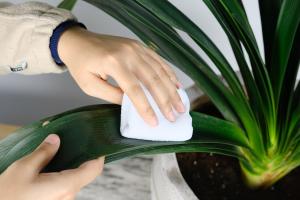When to Germinate Tomato Plants
Tomato plants can be a bit finicky when it comes to germination, and it's important to get the timing just right if you want healthy, robust plants. Here's what you need to know about when to germinate your tomato seeds.
Start Indoors
In most growing zones, tomato plants need to be started indoors in order to get a head start on the growing season. Depending on where you live, this typically means starting your tomato seeds somewhere between four and eight weeks before your last frost date.
You can start your seeds in seed starter trays or small pots filled with potting soil. Be sure to keep the soil moist but not soaked, and keep the trays or pots in a warm, sunny spot or under a grow light.
Be Patient
Once you've planted your seeds, it's important to be patient. Tomato seeds can take anywhere from five to 10 days to germinate, so don't panic if you don't see any sprouts right away.
If you've been waiting for more than two weeks and still don't see any signs of germination, it may be time to start over with fresh seeds. Old seeds or seeds that have been stored improperly are less likely to germinate, so be sure to purchase high-quality seeds from a reputable source.
Consider Your Climate
If you live in a particularly warm climate, you may be able to skip the indoor germination process altogether and sow your tomato seeds directly in the ground. However, if your growing season is short, starting your seeds indoors is a must.
Additionally, if you live in a particularly humid or wet climate, you may want to take extra precautions to avoid damping off, a fungal disease that can kill young tomato plants. Using a well-draining soil mix and avoiding overwatering can help prevent this disease from taking hold.
Transplanting Tomato Seedlings
Once your tomato seedlings are 6-8 weeks old and have developed their first true leaves, they're ready to be transplanted into larger pots or directly into the ground. Be sure to handle the delicate seedlings gently and transplant them on a calm, cloudy day if possible.
When transplanting, bury the stem of the plant up to the first set of leaves. This will encourage the plants to develop a strong root system and help them establish themselves more quickly.
In Conclusion
Growing healthy, robust tomato plants starts with proper germination. By starting your seeds indoors at the right time, being patient, and paying attention to your climate, you can give your tomato plants the best possible start and enjoy a bountiful harvest all season long.

 how many times do yo...
how many times do yo... how many planted tre...
how many planted tre... how many pine trees ...
how many pine trees ... how many pecan trees...
how many pecan trees... how many plants comp...
how many plants comp... how many plants can ...
how many plants can ... how many plants and ...
how many plants and ... how many pepper plan...
how many pepper plan...
































